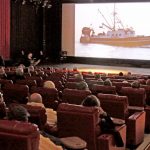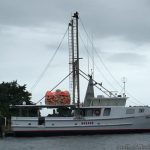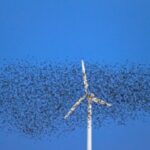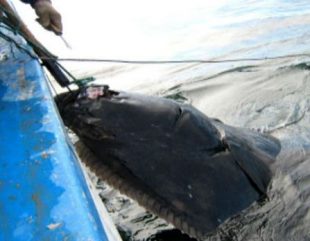Daily Archives: March 2, 2020
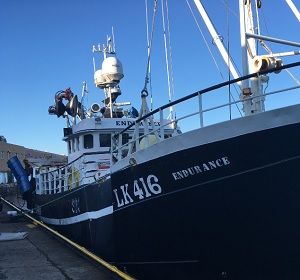
New era beckons for Isles fishing vessel
A new chapter is beckoning for a fishing boat after she was bought by a group of Whalsay fishermen. The Whalsay boat Endurance is due to head off for a 16-day stint at sea after coming under new hands. She was previously known as the Fairway. Skippered by Edward Leask, her crew also includes three Irvines – Grant, the vessel’s mate, and engineer Ben, as well as second David Irvine. Giving his backing to the venture is fellow isle man Ian Irvine. Grant Irvine said he was delighted to play a part in the Endurance’s ongoing story in the Shetland fishing fleet. >click to read< 21:57

Glen Johnson, 64, of Wareham, MA, a retired fisherman
Glen Johnson of Wareham, MA, died at home on February 19, 2020 after a short battle with cancer. His Mother and Daughters were by his side. Glen was born in Quincy, MA on February 25, 1955, to Fred and Barbara Johnson.,,After his marriage to Amy Borjeson he became interested in the commercial fishing industry. He owned his own dragger, the “Louise” for many years, before moving to offshore fishing where he was a successful Captain. In his daughter’s eyes “he could fix anything.” Glen adored his grandchildren Tanner and Reese,,, >click to read< 19:08

Shark fin ban ready for Senate floor
The Senate Rules Committee passed the bill (SB 680), which outlaws the import and export of fins to or from Florida. Jerry Sansom of the Organized Fishermen of Florida said Florida has more fisherman than any other state licensed by the federal government to participate in the heavily regulated and fully sustainable practice of capturing sharks. He noted a sunset on the finning ban in 2025 he says signals legitimate concern about the commercial future of those fishermen. “I don’t remember when the Florida Senate has put an expiration date on an industry before they made us come back and get a pardon,” >click to read< 14:46
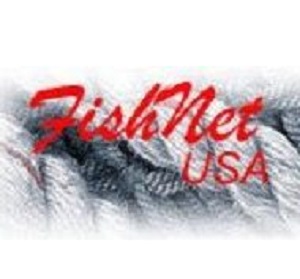
“With a bit of prodding by some valued colleagues”, we will be launching a series “Looking Back”
A few of us were conversing, and the topic of resurrecting’s some of the posts, pages, and information of the past to gauge the changes and improvement’s achieved though the past few decades of fishery management and sacrifice, or if there have been any improvements at all! Nils Stolpe, Jim Lovgren, and I thought perhaps these various posts and articles would give an indication of how the domestic fishing is doing! Both of these gentlemen are exceptional writers, with exceptional knowledge of the domestic fishing industry and they have been featured here many times. We hope people revisit these articles, and for many of the newer fishermen in the industry today, this may be the first exposure to this interesting, and valuable info, and other stories. We’ll kick it off with “With a bit of prodding by some valued colleagues,” >click to read< 13:07
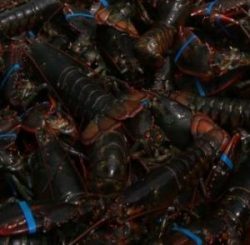
Coronavirus: Despite no shipments to China, Nova Scotia seafood business is thriving
“Our first thoughts are with the people in Asia and China and the rest of the world, Iran, Italy and other countries that are affected by the virus,” says Leo Muise, Executive Director of the Nova Scotia Seafood Alliance. Shipments to Asia have slowed almost to a halt since mid-January when the virus began to spread. “Geo-political events that happen all over this world have a great effect on this industry. Three years ago when the U.S. government and the Chinese government got into that trade war, and China put retaliatory tariffs on the U.S., that’s when our sales to China started to boom because we have a financial advantage there,” >click to read< 10:53
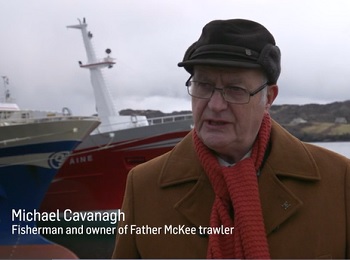
Fishing: Why it is the first flashpoint issue in EU-UK trade talks
The Father McKee is the Greencastle man’s 65m trawler and is out with his sons in the north Bay of Biscay off France fishing for boarfish, a small fish used to make meal for feeding salmon. Cavanagh does not fish anymore – “too many birthdays”, says the 70-year-old. The UK’s decision to exit the European Union and the potential closing of soon-to-be British waters, on top of existing restrictions, has made life stormier onshore for Irish fishermen like Cavanagh. “We have more challenges ashore than when we are at sea,” says Cavanagh, buffeted by blustery Donegal weather on the quayside. Video, >click to read< 10:20
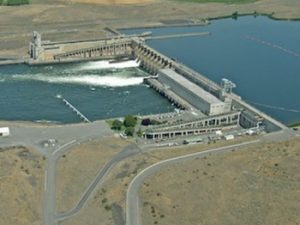
Feds reject removal of 4 US Northwest dams
The four dams on the lower Snake River are part of a vast and complex hydroelectric power system operated by the federal government in Washington, Oregon, Idaho and Montana. The massive dams, built in eastern Washington between 1961 and 1975, are at the center of a years-long battle that pits the fate of two iconic Pacific Northwest species — the salmon and the killer whale — against the need for plentiful, carbon-free power for the booming region.,, Snake River sockeye were the first species in the Columbia River Basin listed under the Endangered Species Act in 1991. Now, 13 salmon runs are listed as federally endangered or threatened. Four of those runs return to the Snake River. >click to read< 08:17
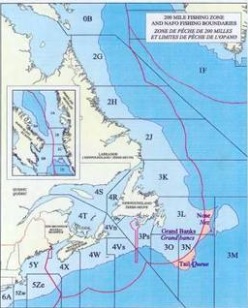
On this day in1977: 200-mile limit fishing zone takes effect
On this day in 1977, a 200-mile territorial fishing zone took effect, with the waters off Cape Cod being one of the two areas where the Coast Guard focused its enforcement efforts. Coast Guard vessels also patrolled the rich fishing grounds near Kodiak, Alaska, to protect American fishermen from foreign competition.”Poachers illegally fishing U.S. waters or taking the wrong kind of fish can be seized,” United Press International reported. Foreign vessels were required to obtain permits to fish within 200 miles of the US coastline, while some coastal areas and species of fish were deemed off-limits altogether. The federal government warned other nations that Coast Guard patrol boats would not hesitate to board foreign fishing boats within the 200-mile limit to ensure compliance. >click to read< 06:53

































